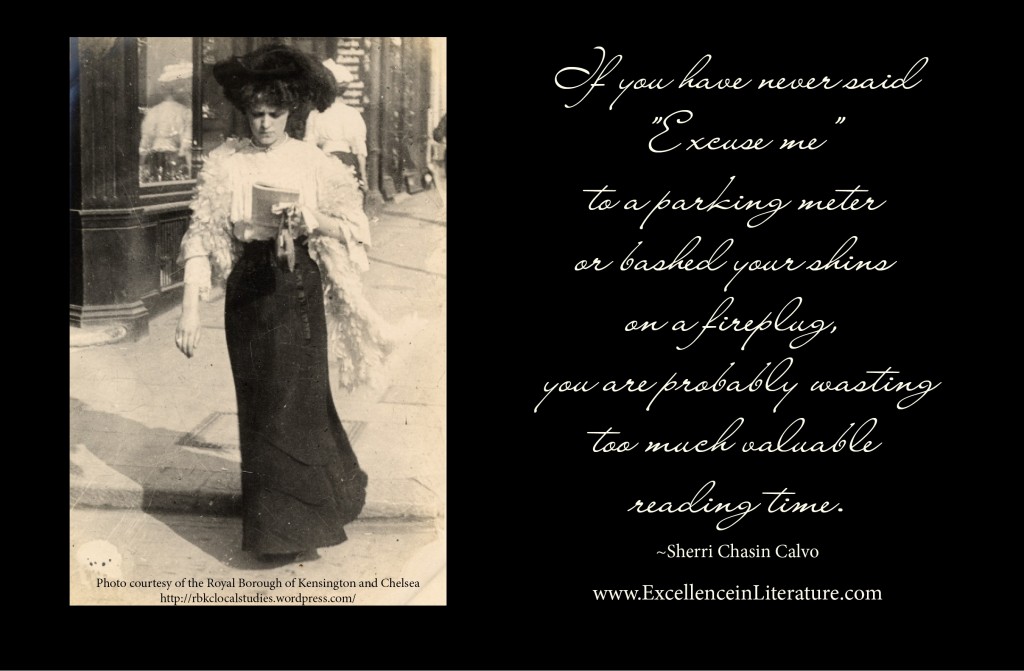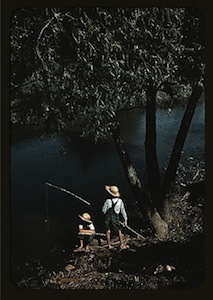There are authors who write copiously, and authors who think copiously. J.R.R. Tolkien was of the latter sort, and the world he created and the creatures within it have been part of my literary world for decades. I first read The Hobbit in high school—and I liked it. Then I read Lord of the Rings and loved it. At the second reading of The Hobbit, I finally fell in love, and the love affair has continued. I look forward to many more happy readings in the decades ahead.
This article by Joseph Pearce first appeared on The Imaginative Conservative and Intellectual Takeout, and is reprinted by permission. All Amazon links in the article are affiliate links, benefitting the original publisher.
The Hobbit Turns 80

“In a hole in the ground there lived a hobbit.” When Tolkien wrote these words, which would become one of the most famous and most memorable opening sentences in all of literature, he could not have known what literary power would be unleashed by his creation of the diminutive hole-dwelling creature, Bilbo Baggins. This year, as we celebrate the eightieth anniversary of the publication of The Hobbit, we can see that the book’s success has been nothing short of a worldwide phenomenon. It is now rated as the sixth bestselling work of literature of all time, with over 100 million copies sold. As if this were not enough in itself, the adventures of Bilbo’s nephew, Frodo, as told in the later book, The Lord of the Rings, have proved even more popular, more than 150 copies being sold, making it the third bestselling book of all time. Only Don Quixote and A Tale of Two Cities have proved more successful in terms of sales, and one suspects that most of the success of these two titles is due to the fact that they are set texts on high school and college curricula in the Spanish and English speaking worlds, whereas, in contrast, Tolkien’s books are hardly ever to be found on the syllabi of literature courses. In other words, the books by Cervantes and Dickens are bought under constraint, as required reading, whereas Tolkien’s books are bought freely as desired reading (none of which is to detract from the worthiness of Cervantes and Dickens).
What is the secret of Tolkien’s success? No doubt, it has something to do with his power as a storyteller; his ability to spin a yarn with unsurpassed mythopoeic skill. Perhaps it also has much to do with the epic scale of his work, which puts one in mind of Homer or Virgil, placing him in their illustrious company rather than in the company of his novel-writing contemporaries. It is much more likely, however, that the success of The Hobbit and The Lord of the Rings is connected to what they tell us about ourselves and the world in which we find ourselves. As Tolkien insisted in his famous essay “On Fairy-Stories” a good fairy-tale holds up a mirror to man. It shows us ourselves.
What, therefore, do The Hobbit and The Lord of the Rings show us about ourselves and the world in which we find ourselves?
They show us that we live in dark and dangerous times. They show us that the power of darkness appears to be winning. They show us, as Galadriel says and as Tolkien also says in one of his letters, that history is a “long defeat.” And yet they also show us, as Tolkien adds in the same letter, that there are always occasional glimpses of the final victory of goodness over evil. They reveal that the devil, or Satan, or Sauron, or whatever other name we care to give him, is the Prince of this world and holds it in his sway. This is his domain, his dominion, which is why it is a vale of tears and a land of exile for souls seeking to serve goodness, truth and beauty, and not sin, falsehood, and ugliness. In terms of politics, the Dark Lord is always in the ascendant, which is why fools put their trust in politics.
And yet The Hobbit and The Lord of the Rings show us something else, beyond the world of mere Power which is taken so seriously by those who are its servants. Tolkien’s epics show us that we are not the absurd creatures that the Dark Lord’s servants would have us believe that we are. We are not postmodern nonentities, nothing but meaningless mortals living meaningless existences in a meaningless cosmos. On the contrary, we are what history and tradition, and good theology and philosophy, have always taught us that we are; we are anthropoi and homines viatores. We are those who look beyond ourselves to the goodness, truth, and beauty of objective reality; and we are those who see our lives as a journey, a quest, an adventure, the purpose of which is to get to the heaven-haven of the reward, as Gerard Manley Hopkins would say.
As anthropoi we look beyond the darkness to the light that transcends it and is beyond it. We agree with Samwise Gamgee that “above all shadows rides the sun.” As homines viatores we know that our Life-Quest involves a long and arduous journey in which we will face many demons and many dragons, wearing many disguises, and that we can face such enemies with courage, knowing that there is One who is greater than any dragon to defend us in our struggles, if we call upon His aid.
It is this understanding of who we are which is the secret of Tolkien’s success. He shows us who we are, who we hope to be and who we are meant to be, all of whom are who we were created to be. It is for this reason that The Hobbit is still going strong after eighty years. And it is for this reason that its success and the success of its successor, The Lord of the Rings, is so worth celebrating.
–
This Imaginative Conservative essay was republished with permission. Books on the topic of this essay may be found in The Imaginative Conservative Bookstore including Joseph Pearce’s Bilbo’s Journey and Frodo’s Journey. The Imaginative Conservative applies the principle of appreciation to the discussion of culture and politics—we approach dialogue with magnanimity rather than with mere civility. Will you help us remain a refreshing oasis in the increasingly contentious arena of modern discourse? Please consider donating now.
This post ‘The Hobbit’ Turns 80 was originally published on Intellectual Takeout by Joseph Pearce.










 Why? Why do I go through cycles of forgetting the library? I stopped by today to donate old magazines to the give-away basket and came out with amazing riches. The reading pile by my chair is teetering dangerously, but here’s what’s at the top of the stack:
Why? Why do I go through cycles of forgetting the library? I stopped by today to donate old magazines to the give-away basket and came out with amazing riches. The reading pile by my chair is teetering dangerously, but here’s what’s at the top of the stack: